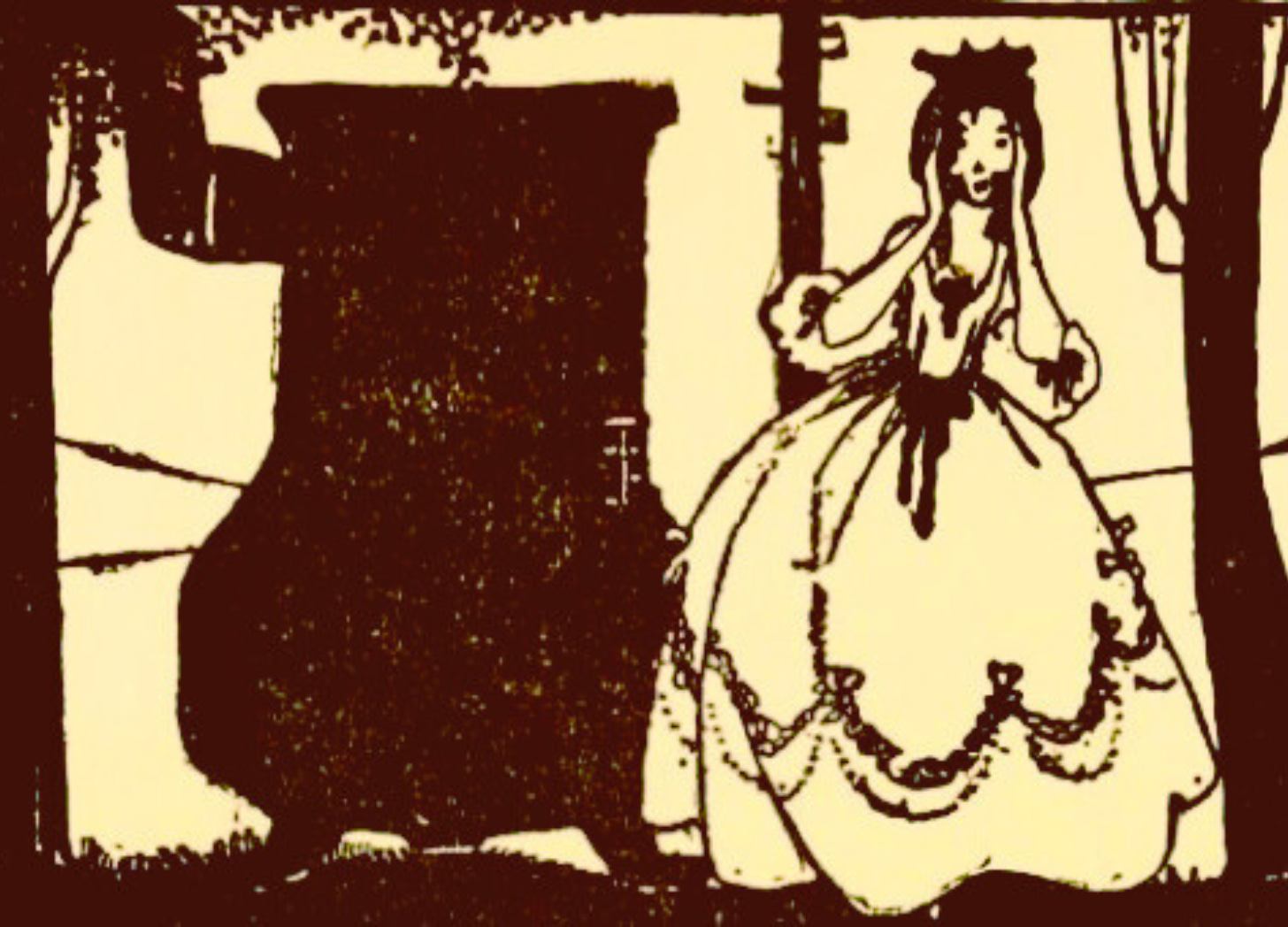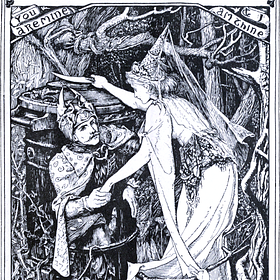We are in the final stretch of this third season of Digital Jung. In just a few weeks, I will be taking a summer break — resting up, yes, but also taking some time to make preparations for Season 4. Before this season comes to an end, however, I thought I would put together a series of episodes that takes an in-depth look at one fairytale: ‘The Iron Stove’ from the Grimm Brothers’ collection of tales.
I have done a few series like this in the past with several episodes dedicated to one tale. In season one I looked at the stories of ‘The White Snake’ in episodes 14, 15, and 16, and ‘Old Sultan’ in episodes 32 and 33. And I explored the tale of ‘The Seven Ravens’ in episodes 16 and 17 of season two.
In many ways, ‘The Iron Stove’ is a classic example of the Hero’s Journey, this time with the figure of a King’s Daughter in the role of the hero. Her adventure is an opportunity to explore themes such as the encounter with beauty and transcendence, the resistance to change, the importance of humility and perseverance, the relationship between the masculine and feminine dimensions of experience, and more.
As is clear from the title, this first episode of the series looks at the experience of the spirit. As Jung writes, “Only a life lived in a certain spirit is worth living.”1 And while the particular fairytale that I’ve chosen to look at is, in part, about this encounter with a “certain spirit,” it is also true that every fairytale, approached in the right way, is an encounter with the spirit.
Expressed in Jungian language, every fairytale has the potential to bring us into a right relationship with the archetypal background of our lives when we engage it consciously and with our full attention.
As I say in the episode:
To the religious imagination, the human being lives in both historical time and “Once upon a time.”
The archetypal background, then, is imagined not so much as a place, as it is a different quality of time. Hence the familiar formula “Once Upon a Time.” If we take the symbolic world of the story seriously, it can direct our awareness to this vitalizing sense of time that lies within and beneath our everyday experience.
It is when we are brought into connection with this dimension of experience, Jung notes, that the fullest realization of our potentials becomes possible.
Each of the episodes in this series will look at a different section of the story and I will be proceeding through the fairytale section by section. The downside of this approach, as I acknowledge in the podcast, is that it can make it easy to lose the thread of the overall narrative. Because of this difficulty I have created a separate page where you can access both the text and a recording of the ‘The Iron Stove,’ in case you would like to experience the story as a whole.
The text and recording can be found at the link immediately below:
I hope you enjoy this latest offering from Digital Jung. You can find this episode wherever you listen to your podcasts or simply by clicking this link: The Life of the Spirit: The Iron Stove, pt. 1.
Thanks for listening, and take good care!
Remainders
In this week’s episode, I spend some time discussing the difference between historical time and mythic time. Here is a quote from Mircea Eliade that describes the significance of these different experiences of Time.
“Just as modern man proclaims himself a historical being, constituted by the whole history of humanity, so the man of archaic societies considers himself the end product of a mythical history, that is, of a series of events that took place in illo tempore, at the beginning of Time. But whereas modern man sees in the history that precedes him a purely human work and, more especially, believes that he has the power to continue and perfect it indefinitely, for the man of traditional societies everything significant — that is, everything creative and powerful — that has ever happened took place in the beginning, in the Time of the myths.”2
Spirit and Life in ‘Collected Works, vol. 8’ by C.G. Jung
Rites and Symbols of Initiation by Mircea Eliade





